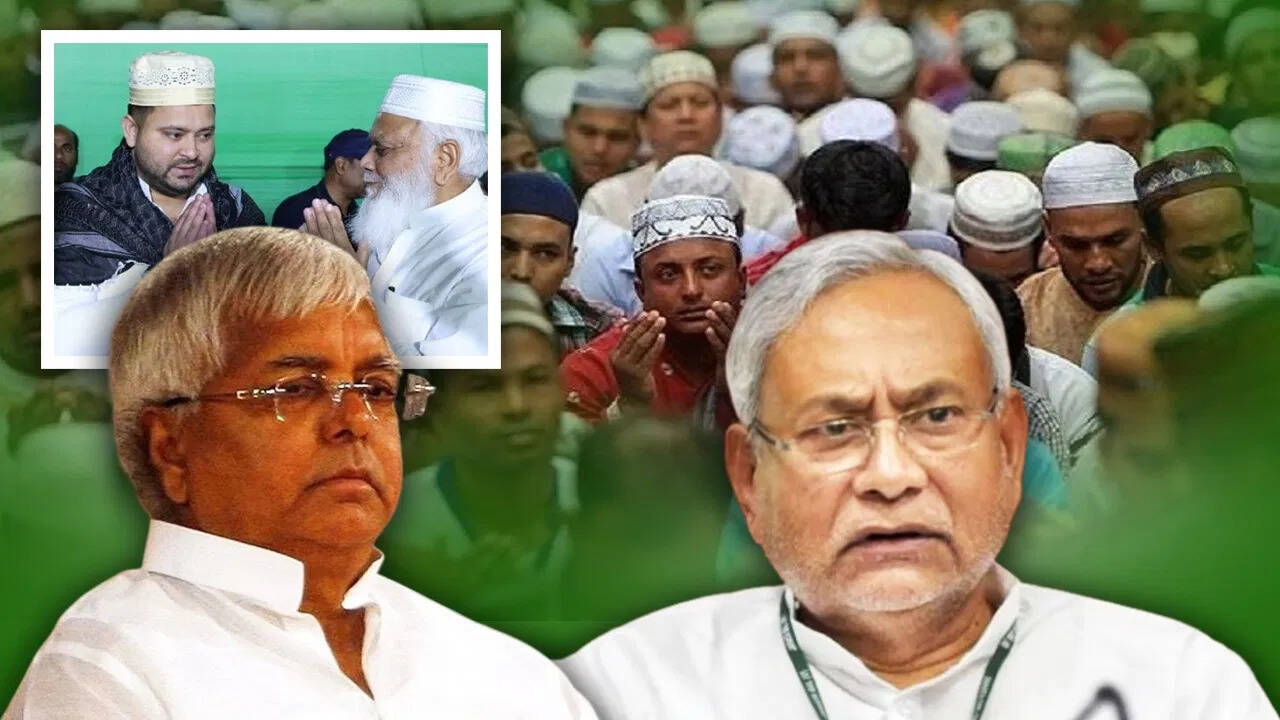The last date to file nomination for the first phase of Bihar elections is over. But among the candidates announced by the leading parties for the first phase, the number of Muslim candidates is very less. Muslims constitute about 17.7% of the state’s population, while in the northern border districts this number exceeds 40%. However, Muslim names are rarely seen in the lists of candidates of political parties for the assembly elections. So far, no political party has announced more than four Muslim candidates for the 243 assembly seats in the state. However, Prashant Kishor’s newly formed Jan Suraj Party has promised to field 40 Muslim candidates and has already announced 21 candidates. All this happens when the Muslim population in 87 seats is more than 20%, making their vote a decisive factor in the electoral fortunes of any candidate. However, about 75% of the state’s Muslims live in North Bihar. Over the past few years, the Muslim population in Seemanchal, or the border districts of Katihar, Purnia and Araria, has increased by 40%, while in Kishanganj district, Muslims have become majority, outnumbering Hindus and constituting more than 68% of the total population. JDU-RJD also showed greed. In Bihar, the ruling Janata Dal United, which is contesting on 101 seats this time, has so far given tickets to only four Muslim candidates. While the opposition Rashtriya Janata Dal has yet to announce the final list of its candidates, so far it has only three Muslims (Osama Sahib, son of former MP Mohammad Shahabuddin from Raghunathpur seat; Yusuf Salahuddin from Simri-Bakhtiyarpur seat; and Mohammad Israel’s Mansoori from Kanti). National parties are also indifferent towards Muslims. Among the national parties, BJP has not fielded any Muslim candidate on any of the 101 seats it is contesting, while another national party, the Congress, which has not yet officially announced the number of seats it is contesting, has so far announced only four Muslim candidates. However, some Muslim leaders of the party are raising questions as to why Congress leader Rahul Gandhi’s demand for proportional representation is not being implemented here. Among other smaller parties, Lok Janshakti Party (Ram Vilas Paswan) is contesting 29 seats as part of the ruling NDA. Its only Muslim candidate, Mohammad Kalimuddin, was introduced. Kalimuddin is contesting on 101 seats. Bahadurganj seat of Northeast Bihar. The NDA’s two other allies, Jitan Ram Manjhi’s Hindustani Awam Morcha (Secular) and Upendra Kushwaha’s Rashtriya Lok Morcha, are contesting six seats each in the state, none of them fielding a Muslim. Election strategist-turned-politician Prashant Kishor’s Jan Suraj Party has so far announced 116 candidates, of which 21 are Muslims. Under-Representation of the Muslim Community Since the earliest times, Muslims in Bihar have faced a persistent lack of electoral representation for a long time. Except in 1985, the number of Muslim LPGs in the state assembly has never been more than 10%. However, the state had a Muslim Chief Minister in Abdul Ghafoor. Ghafoor was chief minister for less than two years in the 1970s. However, no Muslim leader held the post of Deputy Chief Minister in Bihar. However, Ghulam Sarwar and Jabir Hussain served as Speaker of the Assembly and Speaker of the Legislative Council respectively. Some Muslim leaders like Abdul Bari Siddiqui, Shakeel Ahmed, Mohammad Taslimuddin and Mohammad Zama Khan served as cabinet ministers. A total of 390 Muslim MPs were elected in Bihar in the 17 elections held between 1952 and 2020, which is only 7.8% of the total elected MPs. The highest number of Muslim MPs were elected in 1985, when Bihar was undivided and had an assembly of 324 members. At that time, 34 became Muslim LPGs. In the 2020 assembly elections, only 19 Muslims won in the 243-seat assembly. The condition of poor and marginalized Pasmanda Muslims in Bihar is even worse in terms of electoral representation. Despite the Pasmanda community constituting 73% of the state’s 23 million Muslims, only 18% Muslim MPs are Pasmandas. In 2020, there were only five Pasmanda MPs, of which four belonged to the All India Majlis-e-Ittehadul Muslimeen (AIMIM) and one to the Rashtriya Janata Dal.
Muslim leaders are less in the list of candidates, are the parties afraid of failure?
